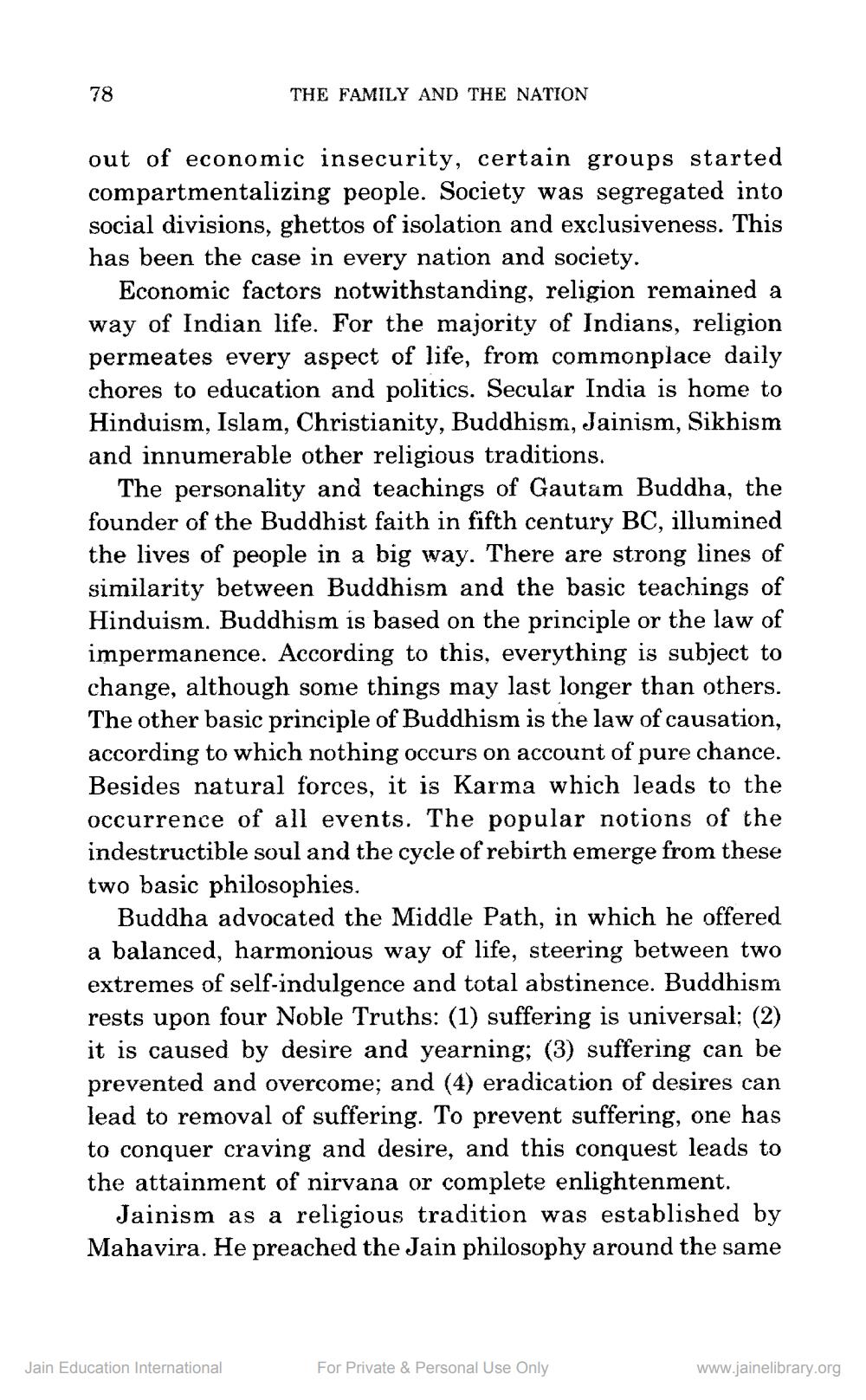________________
78
THE FAMILY AND THE NATION
out of economic insecurity, certain groups started compartmentalizing people. Society was segregated into social divisions, ghettos of isolation and exclusiveness. This has been the case in every nation and society.
Economic factors notwithstanding, religion remained a way of Indian life. For the majority of Indians, religion permeates every aspect of life, from commonplace daily chores to education and politics. Secular India is home to Hinduism, Islam, Christianity, Buddhism, Jainism, Sikhism and innumerable other religious traditions.
The personality and teachings of Gautam Buddha, the founder of the Buddhist faith in fifth century BC, illumined the lives of people in a big way. There are strong lines of similarity between Buddhism and the basic teachings of Hinduism. Buddhism is based on the principle or the law of impermanence. According to this, everything is subject to change, although some things may last longer than others. The other basic principle of Buddhism is the law of causation, according to which nothing occurs on account of pure chance. Besides natural forces, it is Karma which leads to the occurrence of all events. The popular notions of the indestructible soul and the cycle of rebirth emerge from these two basic philosophies.
Buddha advocated the Middle Path, in which he offered a balanced, harmonious way of life, steering between two extremes of self-indulgence and total abstinence. Buddhism rests upon four Noble Truths: (1) suffering is universal; (2) it is caused by desire and yearning; (3) suffering can be prevented and overcome; and (4) eradication of desires can lead to removal of suffering. To prevent suffering, one has to conquer craving and desire, and this conquest leads to the attainment of nirvana or complete enlightenment.
Jainism as a religious tradition was established by Mahavira. He preached the Jain philosophy around the same
Jain Education International
For Private & Personal Use Only
www.jainelibrary.org




